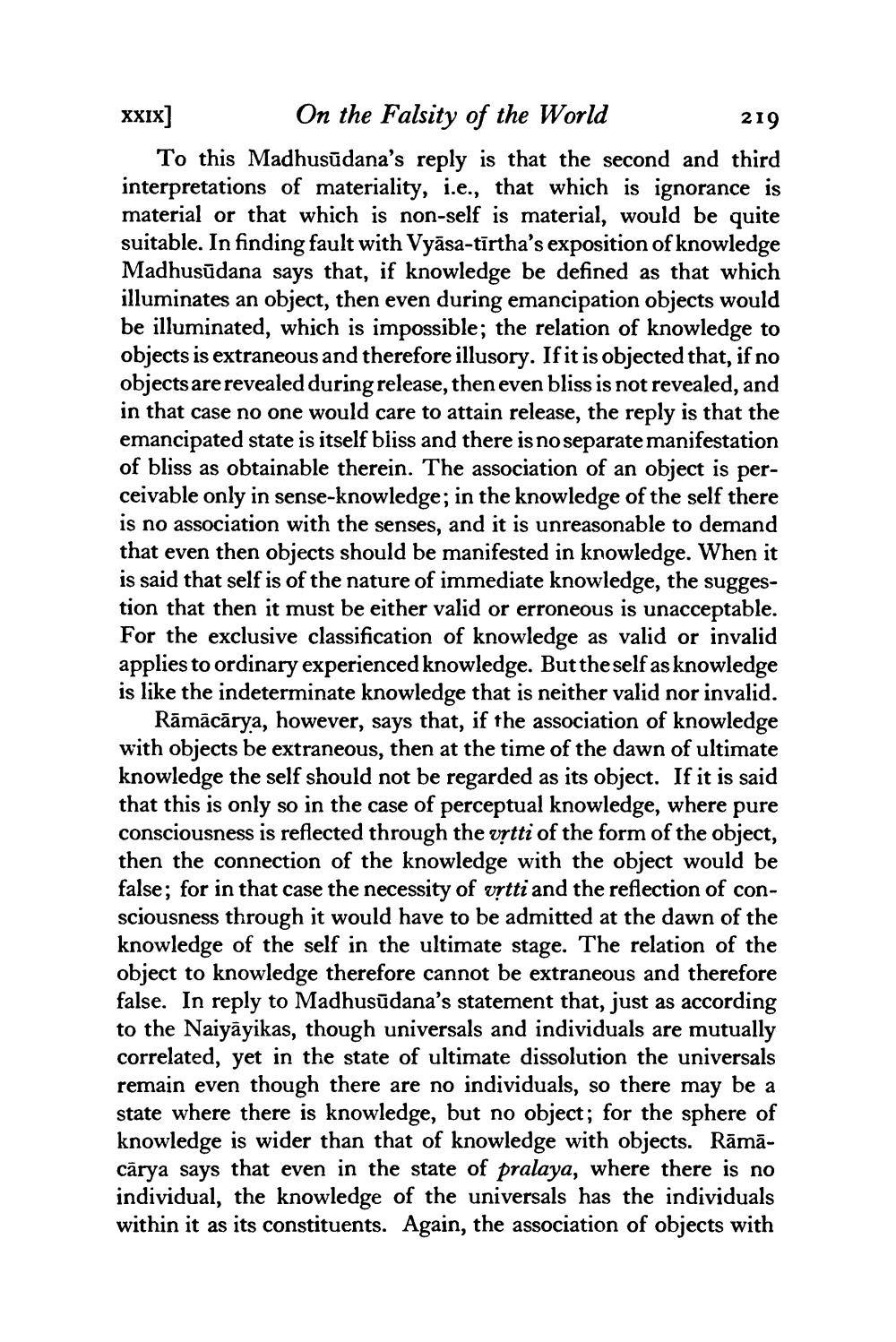________________
XXIX] On the Falsity of the World
219 To this Madhusūdana's reply is that the second and third interpretations of materiality, i.e., that which is ignorance is material or that which is non-self is material, would be quite suitable. In finding fault with Vyāsa-tīrtha's exposition of knowledge Madhusūdana says that, if knowledge be defined as that which illuminates an object, then even during emancipation objects would be illuminated, which is impossible; the relation of knowledge to objects is extraneous and therefore illusory. If it is objected that, if no objects are revealed during release, then even bliss is not revealed, and in that case no one would care to attain release, the reply is that the emancipated state is itself bliss and there is no separate manifestation of bliss as obtainable therein. The association of an object is perceivable only in sense-knowledge; in the knowledge of the self there is no association with the senses, and it is unreasonable to demand that even then objects should be manifested in knowledge. When it is said that self is of the nature of immediate knowledge, the suggestion that then it must be either valid or erroneous is unacceptable. For the exclusive classification of knowledge as valid or invalid applies to ordinary experienced knowledge. But the self as knowledge is like the indeterminate knowledge that is neither valid nor invalid.
Rāmācārya, however, says that, if the association of knowledge with objects be extraneous, then at the time of the dawn of ultimate knowledge the self should not be regarded as its object. If it is said that this is only so in the case of perceptual knowledge, where pure consciousness is reflected through the vrtti of the form of the object, then the connection of the knowledge with the object would be false; for in that case the necessity of vrtti and the reflection of consciousness through it would have to be admitted at the dawn of the knowledge of the self in the ultimate stage. The relation of the object to knowledge therefore cannot be extraneous and therefore false. In reply to Madhusūdana's statement that, just as according to the Naiyāyikas, though universals and individuals are mutually correlated, yet in the state of ultimate dissolution the universals remain even though there are no individuals, so there may be a state where there is knowledge, but no object; for the sphere of knowledge is wider than that of knowledge with objects. Rāmācārya says that even in the state of pralaya, where there is no individual, the knowledge of the universals has the individuals within it as its constituents. Again, the association of objects with




